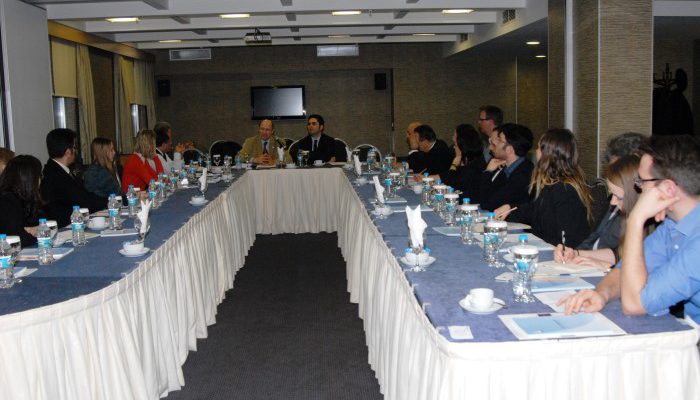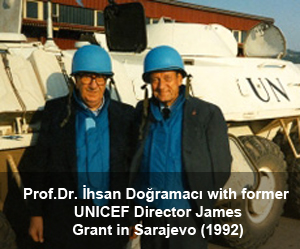DEVELOPMENTS IN MEDIATION AND QUIET DIPLOMACY
On March 12th, 2014, Dr. John Packer, Professor of Law and Constitutions and Process Design Expert on the United Nation’s Standby Team of Mediation Experts addressed a Bilkent International Security and Strategy Seminar (BISSS) at the Bilkent Hotel.
Professor Packer started his speech by overviewing the significance of mediation and preventive diplomacy. He emphasized that the world is highly interdependent on so many levels – economic, social and security-based – that simply no one can afford the implications of wars and violent conflicts. He proposed that engaging inter-governmental organizations and other key actors to develop institutional arrangements and to provide impartial assistance to parties of conflict are essential factors for mediation.
Professor Packer first explained what has been observed to date in terms of developments in forms of conflict resolution. Although institutional support systems and their functions have been limited in the past, Professor Packer put forward that a new trend emerging in improving policy and practice through the development of practical tools and building institutional capacity for mediation is a positive sign of progress in conflict management. However, in addition to being mediation-dedicated, he suggested, agencies and actors involved in this institutional development should also address the root causes of violent conflicts by promoting preventive diplomacy.
Moreover, efforts for peace on multiple levels: bilateral, non-governmental and private, i.e. cultural and religious intercommunity initiatives, raise the question of which actors are appropriate for effective preventive diplomacy and mediation. In this regard, Professor Packer suggested that the active composition of teams of people with proper professional area knowledge and relevant mediation skills as well as in-depth understandings of all parties in the conflict and their multiple interests, must be considered since conflict situations are by nature complex. He also noted the need to discuss the impacts of institutional culture – i.e. bureaucratic culture- and changing governance structures on managing mediation. Professor Packer concluded his remarks saying that although we continue to improve in building peace and in building institutions to manage conflicts, global history has proven that we have consistently invested more in war than in peace.




